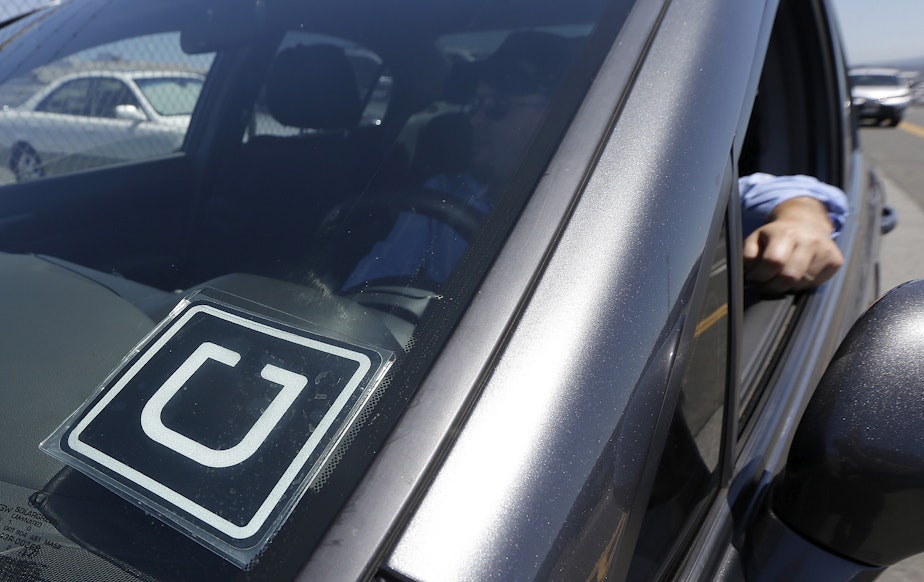Changes to Washington employment laws and wages in 2023

From changes to minimum wages, ride-share drivers, and employment transparency, new rules for Washington's employers went into effect at the start of 2023.
Washington state is joining California, Colorado, and New York City by becoming more transparent about pay in job postings.
"With the start of the new year, businesses with 15 or more employees now must include in their job postings the following information: salary range or pay scale; a general description of all benefits offered; and to identify if there is any other compensation that might come with this job," explained Pluribus News reporter Austin Jenkins on Seattle Now.
"The law is pretty prescriptive about these pay scales. They are not allowed to do open-ended phrases such as 'up to' a certain amount, or 'no top range.' They actually have to put a scale — a minimum and a maximum. And this is also information that needs to be provided to a current employee who is being promoted or transferred to a different position."
The reason behind the change is to help reduce gender-pay discrimination, and level the playing field.
The law also prohibits wage non-disclosure agreements. That means employers can’t stop employees from comparing or discussing their wages with colleagues.
Sponsored
"When this law was being debated in the Legislature, a big focus was on pay equity and traditionally marginalized workers, namely women and people of color," Jenkins said. "Backers of this law said this would make Washington more competitive for job seekers at a time when employers are struggling to recruit and retain workers, but they also said that this would create a more level playing field and address equity issues, noting the history of, particularly women and people of color, paying a price for trying to negotiate salary and benefits."
"Opponents countered that this would be a burden, especially on smaller employers, but the prevailing thought when this passed was — if this information is made available up front when you are applying for a job, not after you get it, it puts workers, especially certain marginalized workers, in a better, stronger position."
Minimum wage goes up in Washington state
Also, as of Jan. 1, Washington state now has the highest minimum wage in the country. It jumped from $14.49 an hour to $15.74 for workers 16 and older.
Workers younger than 16 will be paid $13.38 an hour.
Sponsored
The Labor Law Center says California has the next highest minimum wage at $15.50 per hour, followed by Massachusetts, where workers will earn at least $15 per hour starting this year.
"Washington is one of 27 states where the minimum wage is going up in 2023," Jenkins said. "What is symbolically significant here is that this is the first time Washington's minimum wage will eclipse $15 an hour, and that is the threshold that SEIU and other advocates have been pushing for for more than a decade."
Jenkins said Washington's current minimum wage is now more than double the federal minimum wage, which has not budged since 2009. The federal rate of $7.25 an hour is still the minimum wage in 20 states.
Wages in SeaTac, Seattle, and Tukwila are even higher than the state's new rate. SeaTac's minimum wage is now $19 per hour. Last year, Tukwila voters approved a move that would match their city's minimum wage with SeaTac's. In Seattle, minimum wage depends on a few factors, such as the size of the business and if it offers benefits. Seattle's minimum wage ranges from $16.50 to $18.69.
Sponsored
"Here's the reality check," Jenkins said. "If you are living in central Puget Sound and if you are making minimum wage, you are still struggling to get by because of the very high cost of living."
Changes for rideshare businesses
Ride-share drivers in Washington state have new worker protections as of Jan. 1, including minimum pay per trip, workers' compensation for on-the-job injuries, and paid sick leave. Washington is the first state to establish such minimum pay for ride-share drivers.
Washington state’s new law also protects ride-share workers from retaliation for exercising these rights.
The Washington Drivers Union says these are the strongest protections for ride-share drivers in the country. But the law does not make the drivers regular employees of the companies they work for, as some labor advocates had hoped.
Sponsored
According to the Drivers Union, "rates for Seattle drivers will increase to 64¢/minute and $1.50/mile with a trip minimum of $5.62. Rates for the rest of Washington will increase to 37¢/minute and $1.27/mile, with a trip minimum of $3.26."
The union adds that rates in King, Snohomish, and Whatcom counties will go up 97% per minute, and 14% per mile for drivers. Spokane rates will increase 147% per minute and 29% per mile; Vancouver rates will increase 54% per minute and 80% per mile; and Tacoma rates will increase 279% per minute and 53% per mile.
"This law is not without controversy, because while it gave these drivers rights, it also establishes them as independent contractors as opposed to employees," Jenkins said. "This law was seen as a sort of compromise to head off a potential ballot measure by the ride-share companies themselves."
Agricultural workers
Before 2021, agricultural workers were exempt from overtime rules in Washington state. That is slowly changing.
Sponsored
In 2023, agricultural workers must work 48 hours before receiving overtime. In 2024, they must work 40 hours before receiving overtime.
Hear the full conversation with Austin Jenkins at Seattle Now.







